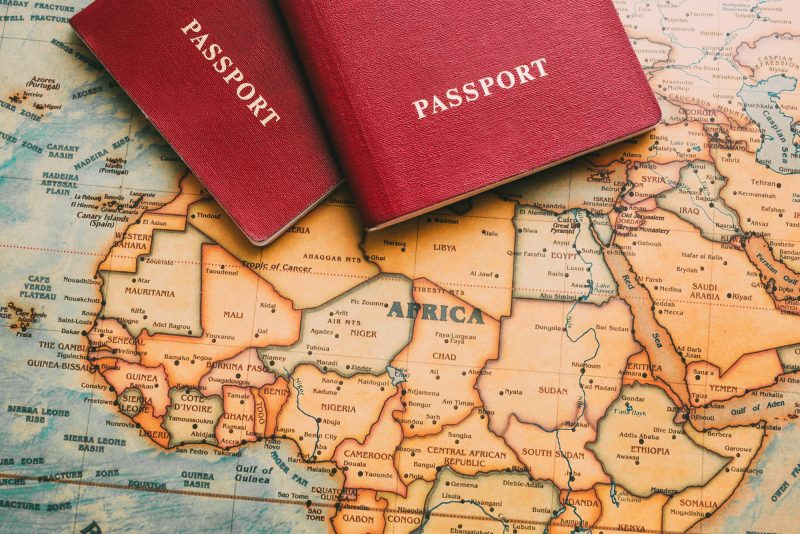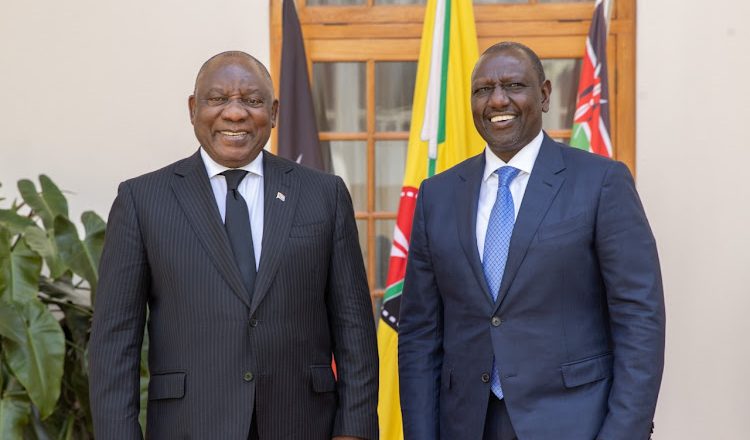How good would it be to travel without having to apply and wait for a visa? This is exactly what citizens of various nations in Europe and the Americas enjoy, and now Africa is discussing it with the aim of allowing its people to travel freely through the various nations on the continent without visas. If ratified by all African nations, this singular piece of transformative policy would have a positive impact on the economies of each nation, specifically through the tourism industry.
The critical discussion on the removal of visa restrictions for Africans was sparked by Kenyan President William Ruto who was speaking at the 3rd Kenyan International Investment Conference. Ruto proposed the removal of visa requirements for intra-African travel as a way to tackle the poor trade between African countries. He pointed to visa restrictions as the main reason why Africa is doing badly in trade between its nations, comparing it to what exists between countries in Asia, Europe, and the Americas.
In this article, we delve into the potential advantages of visa-free travel, with a focus on how the tourism industry in each nation would benefit, paving the way for a more interconnected and vibrant continent. Furthermore, we explore the possibility of a single African currency and its potential implications for the continent.
The Power of Visa-Free Travel
Removing visa requirements within Africa presents a remarkable opportunity for the growth of intra-African tourism. Travelers from different African nations will experience increased ease and convenience in exploring the continent’s diverse destinations. As a result, each nation’s tourism industry will witness a surge in visitors, leading to increased revenue, job creation, and economic growth. By encouraging travel within Africa, this policy change amplifies the discovery of Africa’s cultural heritage, stunning landscapes, and vibrant cities.

Using Kenya as a case study, the removal of visa requirements for travelers from other African countries will unleash a host of benefits for its tourism sector, economy, and the overall development of the country seeing that tourism accounts for a huge chunk of the country’s revenue. With visa restrictions, travelers face bureaucratic hurdles that deter them from exploring the country’s abundant natural wonders. Without it, however, people can easily visit iconic destinations like the Maasai Mara, Amboseli National Park, and the enchanting coastal region.
With an influx of visitors, Kenya’s tourism industry experiences a surge in revenue, resulting in increased spending on accommodation, dining, transportation, and local goods and services. This growth has a multiplier effect on the economy, leading to job creation and improved livelihoods in various sectors, including hospitality, transportation, retail, and handicrafts. The tourism industry becomes a catalyst for overall economic development, benefiting communities across the country.

Other Benefits of Visa-Free Travel
The benefits of visa-free travel extend beyond the tourism sector. This policy shift stimulates broader economic development within Africa. With the removal of barriers, African nations can attract foreign investment, facilitate business collaborations, and promote trade within the continent, which is what President Ruto was getting at with his statement. Entrepreneurs, investors, and professionals can more readily explore opportunities across African borders, spurring innovation, economic diversification, and regional integration. Consequently, this contributes to job creation, poverty reduction, and improved living standards for Africa’s people.
Visa-free travel also plays a vital role in fostering cultural exchange among African nations. As people freely traverse borders, they encounter new cultures, traditions, and ways of life. This exchange enhances intercultural understanding, breaks down stereotypes, and nurtures a sense of shared identity among Africans. By promoting cultural exchange, Africa’s people benefit from increased tolerance, appreciation for diversity, and stronger social cohesion.
Furthermore, the removal of visa requirements creates new opportunities for African students, researchers, and scholars. Students can access a wider range of educational institutions and benefit from diverse academic environments across the continent. Collaboration between universities, research institutes, and think tanks is strengthened, enabling the sharing of knowledge, expertise, and resources. This, in turn, accelerates the development of Africa’s intellectual capital and contributes to addressing the continent’s unique challenges.
The Vision of a Unified African Currency
President Ruto’s vision of a single African currency aligns with the broader objective of fostering a more integrated African economy. It would also significantly impact the tourism sectors of African countries. A unified currency would eliminate exchange rate complexities, reduce transaction costs, and enhance cross-border trade.
Furthermore, it would facilitate financial integration, encourage investment flows, and strengthen economic stability across the continent. However, such a monumental undertaking requires careful planning, coordination, and collaboration among African nations.




